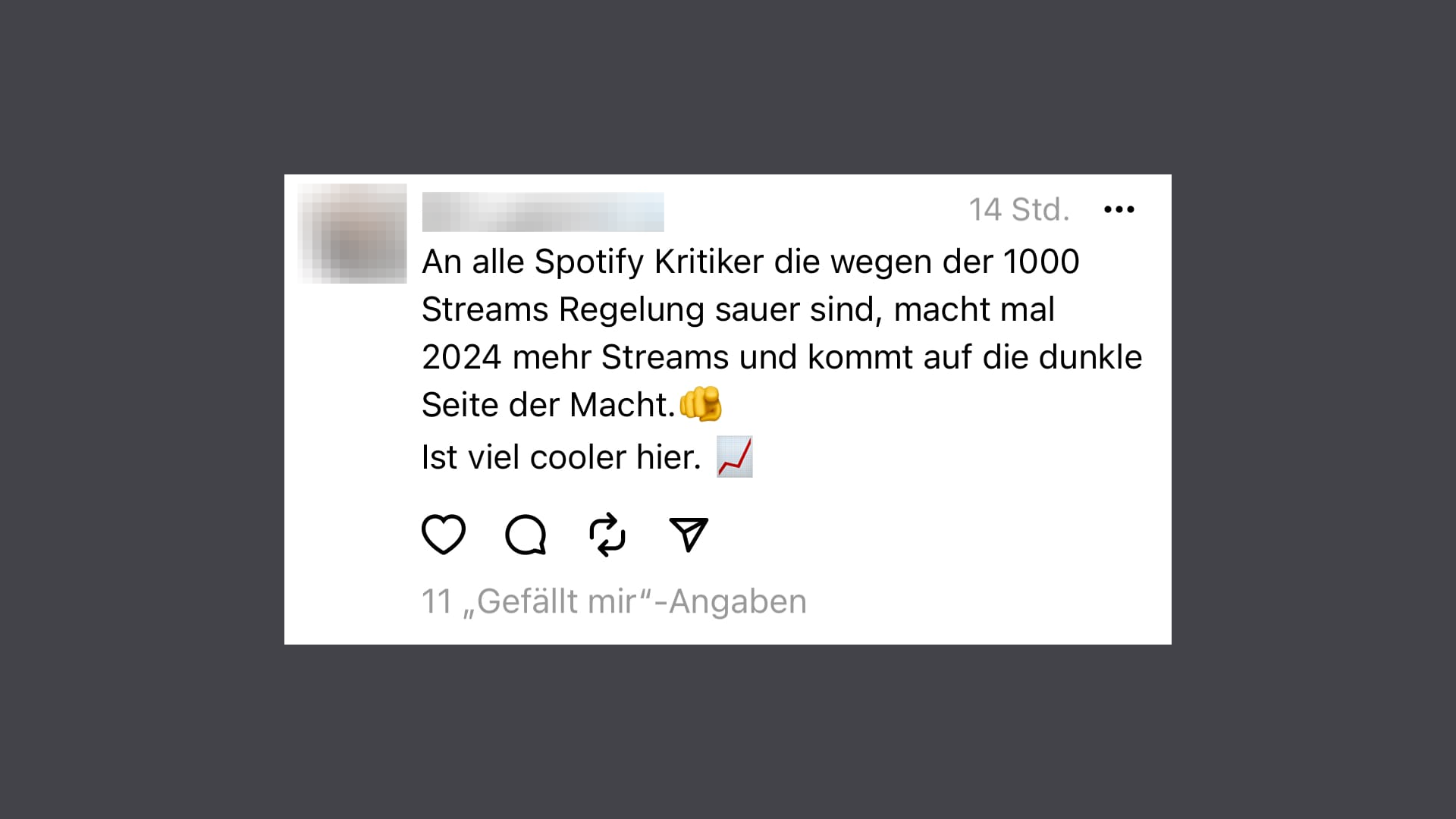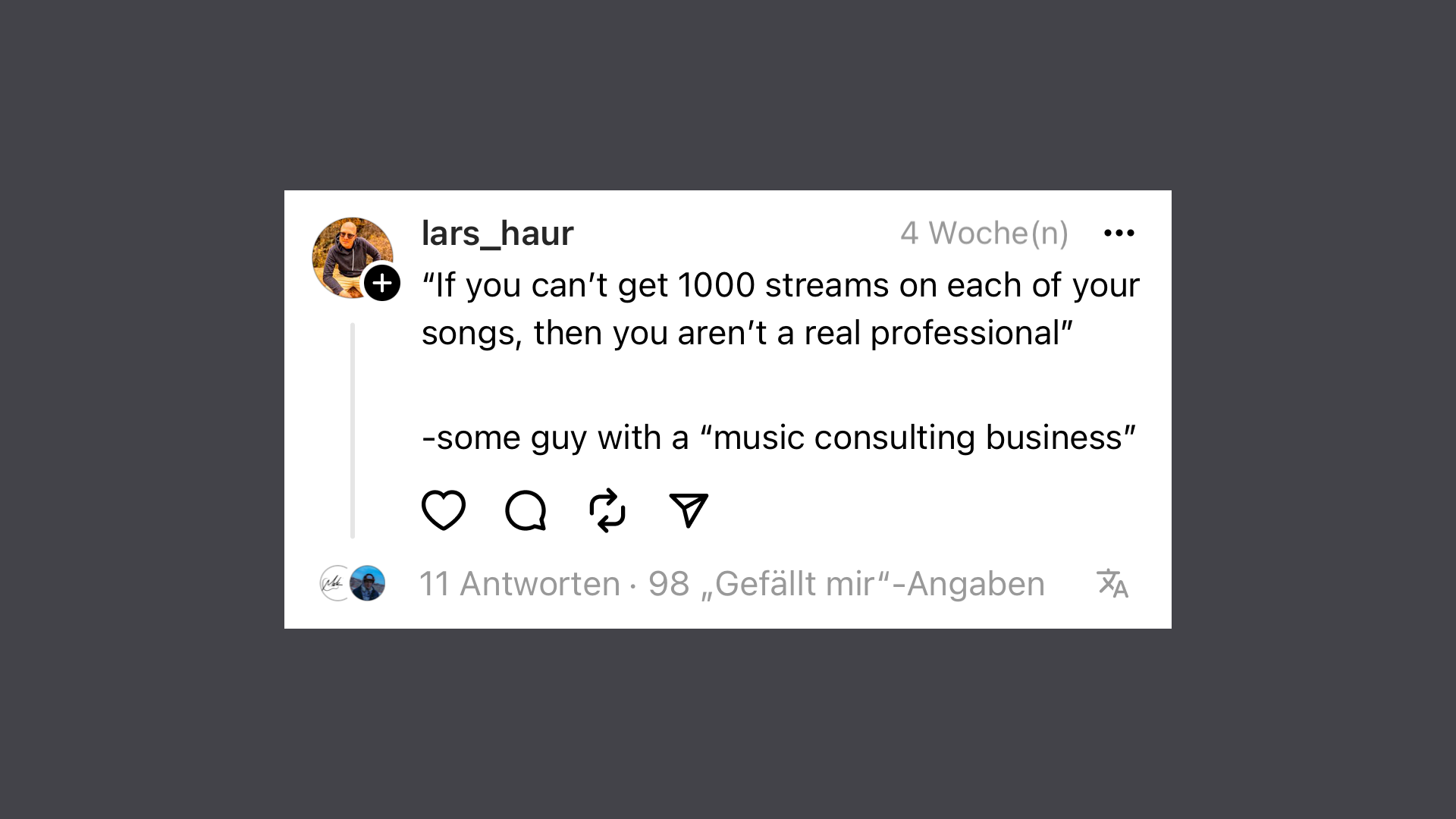Last week, Threads launched in Europe, Meta's Twitter competition. Signing up with Negative White, the algorithm immediately recommended a lot of content from people in the music industry—artists, labels, promoters, managers. «Great,» I thought and read through profoundly intriguing conversations.
But then, there are so many bad takes—written mainly by men that fall somewhere between LinkedIn influencer type, crypto bro, and self-proclaimed business coach, just with a music business twist.
A trendy subject for those guys is Spotify's new policy to only pay artists for songs with more than 1000 streams. And yes, I know: By writing about it, I totally catch the engagement bait for the recognition they so desperately seek.

On the surface, these guys' claim that artists who can't reach 1000 streams for a song don't deserve money seems logical. Their argument that 1000 streams only equals 3 euros and doesn't do much anyway seems also solid. (Leaving aside that Spotify pays artists just horrendously bad, but let's not open this topic here.)
What these music business bros don't seem to grasp, proudly displayed in their conversations, is that the critique doesn't aim at the lost opportunity to earn these life-changing 3 euros but the crossing of a red line by one of the industry's most prominent players.

What's next? Artists only get paid if a song has 10,000 or 100,000 streams? Or if they have 10,000 monthly listeners? Or if they release a new track each month? Crossing that red line is a potential floodgate opener to all sorts of dystopian ideas not to pay the people who deliver the platform's content. That's what we should be worried about—not the number of 1000 streams itself.
And if you're still unable to understand the issue here, let me illustrate it in a different context: Imagine a concert organiser only pays artists for a gig if they sell out the venue. One ticket short? Sorry, but you don't get anything.
Again, it's not about the money: It's about a company that pays artists already horribly exerting a powerplay because its business model isn't sustainable and continues to bleed money.






